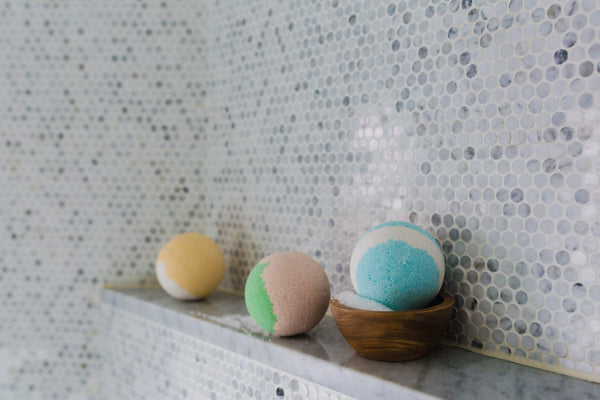How to recognize natural ingredients in skin care
products.
When reading a
label, many people find it difficult to tell if what they are reading is a
natural ingredient or a synthetic one.
Synthetic ingredients are automatically thought of as harmful because we
have been taught to believe it. Likewise we are encouraged to believe that all natural ingredients are safe, however some natural ingredients are just as
scary as many of the synthetic ingredients found in our jars of creams.
Trying to figure
out if an ingredient is natural, synthetic, safe or harmful by just reading the
label can be really confusing. A natural
ingredient can sound like it was created in a laboratory and a totally
synthetic ingredient can sound like it came from the earth.
Obvious natural
ingredients are generally easy to pick out.
Beginning with their scientific (or botanical), name that is often
difficult to pronounce, it’s understandable why it might sound like it could be
synthetic. The common name follows in
parenthesis and usually the part of the plant used follows after the common
name, and finally the form that has been used (extract, oil, butter, leaf,
flower or root).
An example is:
solanum lycopersicum (tomato) seed oil
Not all natural ingredients are safe and some are downright dangerous. For
instance talc which is a natural mineral that is processed into a fine powder,
is found in lots of cosmetics like body powders, makeup and bath products, is believed to be highly toxic and as been linked to ovarian cancer. Aluminum has been linked to
breast cancer but is also a completely natural ingredient from our earth.
http://www.cancer.ca/en/cancer-information/cancer-...
https://www.cancer.org/cancer/cancer-causes/antiperspirants-and-breast-cancer-risk.html
People with an allergy
to nuts would be at high risk with many of the natural carrier oils used in skin care like
walnut oil. Sea buckthorn oil is a carrier oil, although it has very beneficial attributes, can cause extreme sensitivity and allergic reactions.
Some essential oils cause severe allergic reactions. We are sharing this great article about
essential oil safety. It is well worth
reading.
http://www.liveoakacupuncture.com/possible-allergic-essential-oils/
Some synthetic ingredients are derived from natural sources. These ingredients will have the botanical name but it will also use one of the key giveaway words like “derived”, “from”, based. To put this another way, the natural ingredient will have the common name (like “sage”) in parenthesis whereas you’ll see something like “from sage” or “derived from sage”. Ingredients derived from natural sources are a few notches above a completely lab derived ingredient because they come from a natural source even though going through a synthetic process.
Fully synthetic lab produced ingredients should be avoided if possible. These are
items that have no association with anything natural. These ingredients make no mention of a plant source. Some are reported to be safe while others are linked to cancers and other illnesses like Alzheimer's. Synthetic ingredients have names that sound like they are synthetic.
Here is an
informative article that tells consumers some of the really nasty synthetic
ingredients to avoid.
http://www.huffingtonpost.com/vanessa-cunningham/dangerous-beauty-products_b_4168587.html
Should we be afraid of chemicals in our skin care?
It’s best to stick
to “natural” versus “synthetic” rather than to get confused by the word
“chemical” and think all chemicals are bad.
Everything all around us is made of chemicals. Whether you eat it, touch it or see it.
Plants are made of chemicals. People are
made of chemicals. A dog is made of
chemicals. Things that are not made of chemicals are heat, kinetic energy,
gravity, potential energy, ultraviolet light and thoughts. Pretty fascinating, isn’t it?
A consumer really has to be careful about what they read and believe. There are many websites out there that are only personal beliefs with no scientific evidence to back up what they are saying.
Visit our website and read about our products that are made of "natural" versus "synthetic" ingredients.

